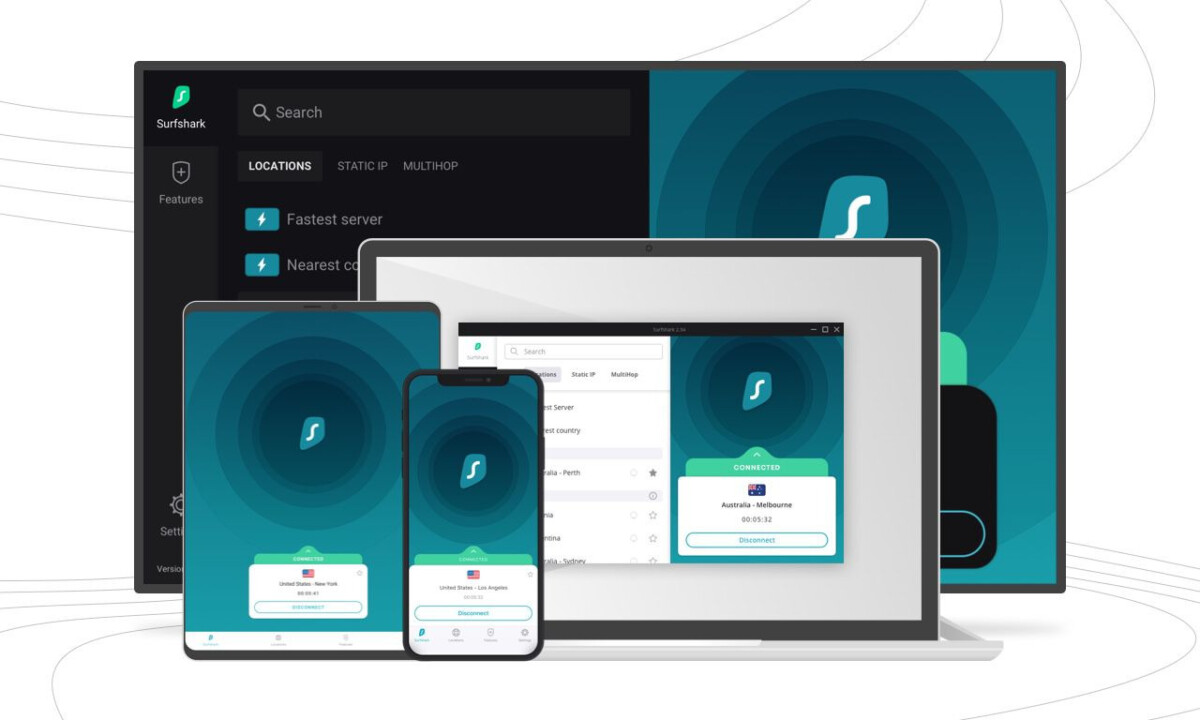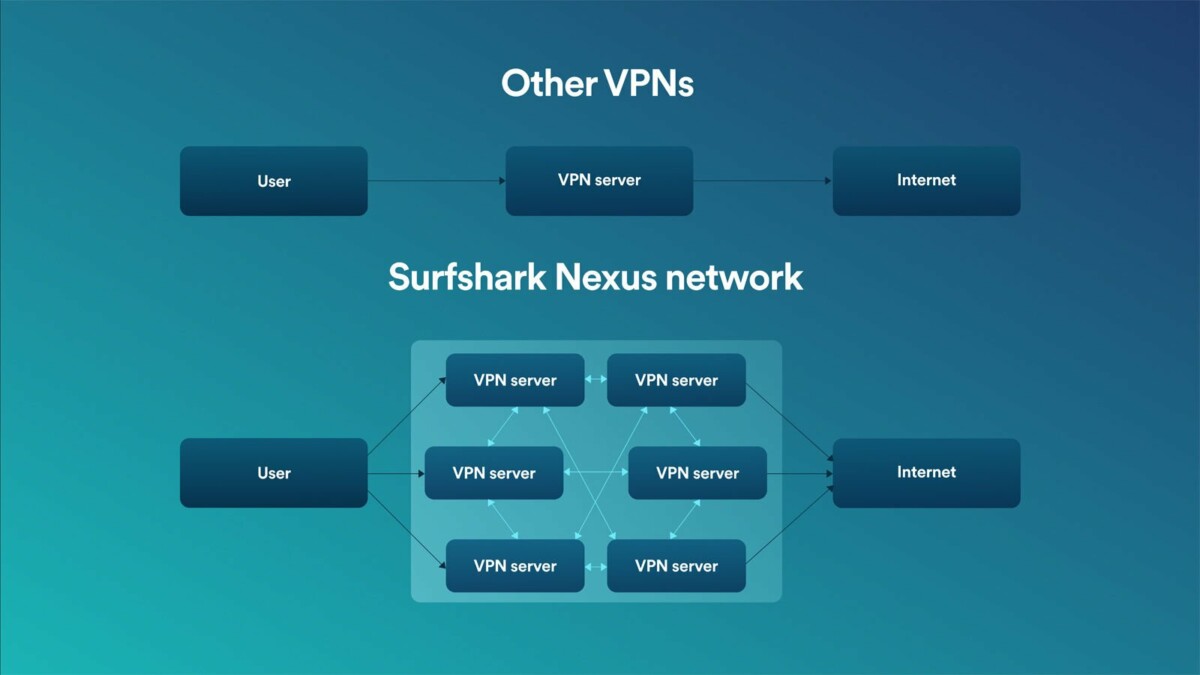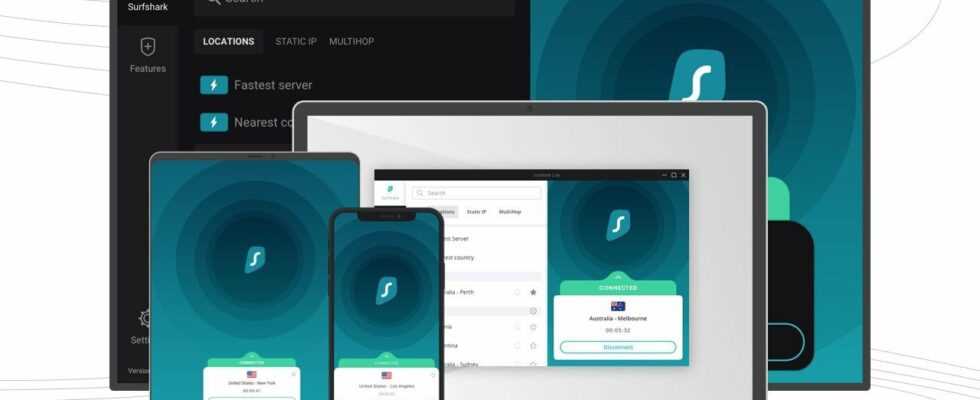The VPN service Surfshark has just announced the deployment of Nexus, a new technology supposed to further protect the privacy and security of its users.

Source: Surfshark
Despite the recent announcement of a strategic merger between NordVPN and Surfshark within the same entity, the latter follow their own roadmap in terms of technology and functionality deployments. In this idea, after the recent implementation of an antivirus called Surfshark One, the VPN service has just announced today the implementation of Nexus, a structural overhaul of its protection system aimed at strengthening security and confidentiality. of its users.
Deliberately complex network routing
It is not an additional option, Nexus is designed to be implemented directly in the structure and protocols of Surfshark. On a classic VPN, network routing is quite simple from server A to server B. With Nexus, the connection passes through a multitude of servers before arriving at its destination, as shown in this illustration below.

This complex mesh promotes safety above all without compromising performance. In any case, this is what Surfshark explains by stating that this cloud of servers is 100% managed by the company and that this can allow them to offer the same quality of service, or even improve it. We have yet to see if Nexus has an impact on connection speeds.
Other beta features
Nexus does not come alone since the new system introduces three new features, one of which is already available in beta on mobile and desktop applications. The first is theIP Rotator which, as its name suggests, changes the user’s IP address every 5 to 10 minutes without disconnecting the connection to the VPN thanks to the Nexus system. This function is in the test phase and can be activated in the advanced settings of the Surfshark app.

The second is theIP Randomizer and stays a little in this idea with a random change of IP for each service that the user launches at the moment. This can be a browser with a different IP for each site visited, a game or any other online platform. This makes tracing even more complex since you can never accurately track browsing habits.
Finally the last feature is the Dynamic MultiHop which completes the MultiHop already existing. This option allows the connection to pass through a relay point before arriving at the final destination, but this time changing the relay server regularly to blur the tracking even more. This system provides a little more than a dozen connection routing options, based on two servers in different countries, such as Germany to the UK and Canada to the US. All this through a different relay server each time to provide another layer of confidentiality and security. Be careful though, this feature necessarily leads to drastic drops in performance to gain protection.
To follow us, we invite you to download our Android and iOS application. You can read our articles, files, and watch our latest YouTube videos.

